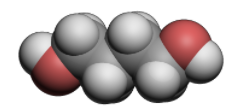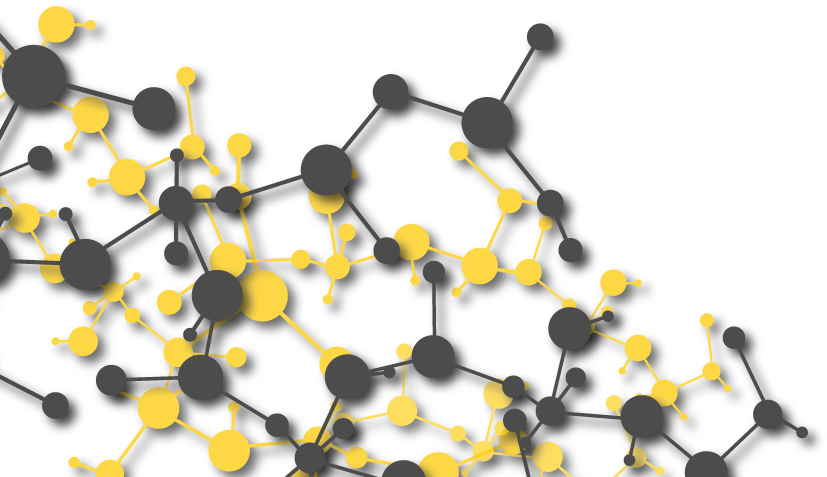 1,4-butanediol (BDO/1,4-BD) is a versatile liquid diol intermediate with reactive primary hydroxyl functionality and a linear structure that lends itself to formulating polyurethanes with a good balance of hardness and low temperature flexibility; high strength and durability; and thermal stability.
1,4-butanediol (BDO/1,4-BD) is a versatile liquid diol intermediate with reactive primary hydroxyl functionality and a linear structure that lends itself to formulating polyurethanes with a good balance of hardness and low temperature flexibility; high strength and durability; and thermal stability.
1,4-butanediol is characterized by…
- A molecular weight (MW) of 90.12.
- An equivalent weight (EW) of 45.06.
- And a hydroxyl value of 1245 mg KOH/g.
- A melting point of 20.1°C (68.2℉)
- A boiling point of 235°C (455℉)
- A flash point of 121°C (250℉)
While 1,4-BDO has a number of uses as a polymer intermediate, BDO plays a key role in the creation of polyurethanes, with urethane grade BDO being particularly advantageous because of its low moisture content (< 150 ppm moisture specification) and very high purity (> 99.85 % purity by gc).
In this article, we’ll explain 5 key properties that set urethane grade BDO apart, covering everything from its function as a chain extender to its various applications.
1. The Role of 1,4-Butanediol (BDO/1,4-BD) as a Polyurethane Building Block
The properties of a polyurethane greatly depend on the structure of the molecular backbone, and chain extenders play a significant role in enhancing the final mechanical properties of polyurethanes.
In polyurethanes, BDO is used as a urethane chain extender (difunctional reactants like BDO are considered chain extenders while reactants with higher functionality are considered crosslinkers) and an intermediate for polyester polyols.
And, when it comes to MDI systems, the chain extender of choice for most processors is 1,4-BDO. Functioning in this role, BDO reacts with MDI or MDI-based prepolymers and H12 MDI systems to create the “hard segment” domains of polyurethanes. 1,4-butanediol yields crystalline urethane domains that efficiently microphase separate to afford tough elastomeric networks.
In thermoplastic polyurethane (TPU) compositions, uncrosslinked BDO-MDI domains can be melted and will flow at elevated temperatures to allow thermoplastic processing. The associated networks reform when cooled to form tough elastomeric compositions.
For polyurethanes in which butanediol is the chain extender in the hard segment (MDI based), you can find the following structural unit:
-NH-CO-O-CH2CH2CH2CH2-O-CO-NH-C6H4-CH2-C6H4-
1,4-butanediol also serves as an intermediate for polyester polyols. BDO polyester polyols, such as poly (butylene adipate) polyol, help create the “soft segment” domains in polyurethane elastomers.
Using BDO polyester polyol, formulators develop polyurethanes with excellent mechanical properties over a broad temperature range. These polyurethanes exhibit good abrasion resistance; cut and chip resistance; excellent oil, grease, and chemical resistance; and weatherability.
2. The Effectiveness of 1,4-Butanediol as a Chain Extender
To understand the popularity of 1,4-butanediol as a chain extender, it’s important to recognize an odd-even effect in polyurethane intermediates.
The first criterion for an effective diol urethane intermediate is linearity; the second criterion is that it ideally contains an even number of carbon atoms (i.e., the number of CH2 groups in the repeating chain).
Molecular-level chain packing of the individual hard and soft segments of polyurethanes benefits the overall performance properties of the resulting elastomers. For polyester polyols and diol chain extenders, an odd-even carbon number effect has been observed.
For example, in adipate polyester polyols based on diols with an even number of carbon atoms (EG-2, BDO-4, and HDO-6), the melting points, glass transition temperatures, and overall performance properties are higher than comparable systems based on diols with an odd number of carbon atoms (PrDO-3 and PeDO-5).
Particularly outstanding is the high degree of crystallinity and melt enthalpy (i.e., heat required to melt the crystalline hard segment) in MDI-BDO hard segments of a polyurethane. Please see the chart below for an example.
|
Melt Enthalpy for MDI/Diol Segments in BDO/Adipate Polyester Polyol based Polyurethanes |
||
|
Diol in Hard Block |
ΔH(J/g)- TM |
TM°C |
|
EG |
0.9 |
175 |
|
1,3-PDO |
0.4 |
145 |
|
BDO |
2.8 |
148 |
|
1,5-PDO |
0.14 |
167 |
|
1,6-HDO |
0.69 |
156 |
(Source)
The odd-even effect is attributed to the crystal packing of the hard segment and hydrogen bonding between neighboring urethane molecules.
For even-number chain extenders, modelling has shown that the molecular chains align better, and interchain hydrogen bonding is facilitated with chain extenders like BDO. This drives the beneficial phase separation between the hard and soft polymeric segments. In fact, many studies have demonstrated that the properties of a polyurethane are very dependent on the extent and perfection of this phase separation.
While ethylene glycol (EG) is also an even-carbon-number diol chain extender, it is not a good alternative to BDO.
There are two disadvantages observed with EG: poor miscibility with many polyols leading to processing and performance disadvantages and the polar nature of EG leading to a reduction in hydrolysis resistance.
Otherwise, EG is a good chain extender and polyester intermediate, affording polyurethanes with good mechanical properties.
3. The Processing Conditions for 1,4-Butanediol Chain Extenders
As a liquid diol, 1,4-butanediol can be used as a chain extender at room temperature in MDI and aliphatic diisocyanate systems.
Processing temperature and catalyst loading levels impact the pot life of diol/MDI systems. While uncatalyzed systems can have a pot life of 10–20 minutes at 70°C, processing at higher temperatures or using catalysts will significantly reduce the pot life. Tin and titanate catalysts are commonly used to increase the reaction rate of the diol with the isocyanate.
In addition, BDO freezes at 20°C (68°F). Therefore, it’s important to maintain BDO above the freezing point to avoid crystallization in the equipment lines and phase separation in a B-Side formulation.
BDO is also hygroscopic and requires maintenance in an inert environment to avoid moisture absorption. With its low moisture content, urethane grade BDO permits processors good control of stoichiometry by avoiding the reaction of H2O with isocyanates and concomitant release of CO2 gas bubbles.
4. The Mechanical Properties of PTMEG/MDI/1,4-Butanediol
The mechanical properties of a representative polyurethane based on a PTMEG 2000/MDI prepolymers and BDO as the chain extender are referenced below.
This table shows the effect of increased hard block content (higher NCO %) on the elastomeric properties. Also note that the tensile properties and tear strength increased with increased hardness.
|
Mechanical Properties of MDI-PTMEG 2000 Prepolymer with BDO Chain Extender |
||
|
NCO, % |
6.60 |
8.20 |
|
Hardness, Shore A |
85A |
90A |
|
100 % Modulus, psi |
830 |
1100 |
|
Tensile Strength, psi |
4800 |
5100 |
|
Elongation, % |
560 |
500 |
|
Tear Strength, pli |
500 |
540 |
|
Bashore Rebound, % |
70 |
64 |
(Source)
5. The Polyurethane Applications of 1,4-Butanediol
Because of BDO’s consistency, durability, and other performance attributes, end-use applications for 1,4-butanediol in polyurethanes are wide ranging, both as a chain extender and in polyester polyols.
The main polyurethanes produced using BDO are solid and cellular elastomers. Applications include a vast array of performance cast urethane parts, such as...
- Wheels, rollers, and belts.
- Recreational equipment.
- Pipe linings and pipeline products.
- Pump liners and parts.
- Hydrocyclones.
- Conveyor belts.
Other applications include…
- High-performance adhesives, sealants, and coatings.
- RIM and TPU parts.
- Automotive components.
- Appliance parts.
- Footwear.
Polyurethanes based on BDO systems perform well in aggressive environments—for example, exposures in mining, mineral, and oil field operations and in medical devices.
Purchasing Urethane Grade BDO: Availability and Packaging
BDO is a readily available intermediate with a favorable price point. At Gantrade, we offer our urethane grade BDO as a general purpose grade.
You can select packaging of either 200 Kg. (441 lb. net) factory-sealed drums or ISO tanks, depending on your requirements.
To secure high-quality 1,4-butanediol and gain personalized guidance for your organization’s needs, contact Gantrade today.














